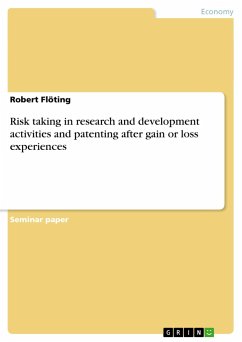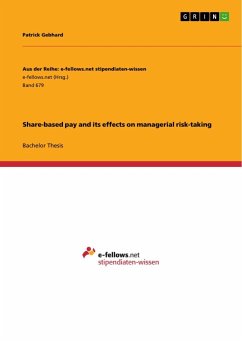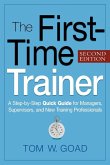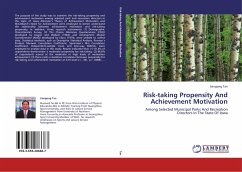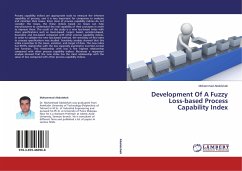Seminar paper from the year 2005 in the subject Business economics - Business Management, Corporate Governance, grade: 1,7, Humboldt-University of Berlin (Entrepreneurship / Innovationmanagement), course: Seminar on Innovation Theory, language: English, abstract: 1 IntroductionThis seminar paper deals with the descriptive decision theory, which tries to show the actual decision behavior especially of ENTREPRENEURS. The question I particular examine is whether research and development activities and patenting is influenced by prior gain or loss experiences of entrepreneurs. This paper objective is to attain an empirically confirmation for this hypothesis. To make this possible I will turn out the evolutionary steps of strategic choice behavior models and show in an experimental study that prior gain or loss experiences have a considerable and significant impact on entrepreneurial risk taking and, as I will show later, as well on research and development activities.2 MotivationTo examine entrepreneurial decision behavior under risk and after personal gain or loss experiences, we should take into account that research and development activities, in sense of developing a new product or product idea and the following placing of the innovation within the market, is obviously quite more risky then a `simple´ product-innovation. Empirical studies show that success of innovative product ideas is indicated by exceptionally low success probabilities about 3 - 5 %. (Perlitz / Löbler 1985, p 426) This gives an idea about the fact that research and development activities involve very high risks. If an Entrepreneur further chooses to patent the Innovation or the new product it produces additional costs and thereby increases the risk, because the potential loss if the venture fails is increasing as well. However, patenting is sometimes necessary to protect innovations against failure or to enlarge the possible outcome. But if entrepreneurs only accept increasing risks ifthere is an increasing expected gain as well, it raises a problem. The R & D activities involve high risks which reduce the expected profit and a small expected profit is not a very good reason for taking big risks. So what is the explanation for this phenomenon?
Hinweis: Dieser Artikel kann nur an eine deutsche Lieferadresse ausgeliefert werden.
Hinweis: Dieser Artikel kann nur an eine deutsche Lieferadresse ausgeliefert werden.

